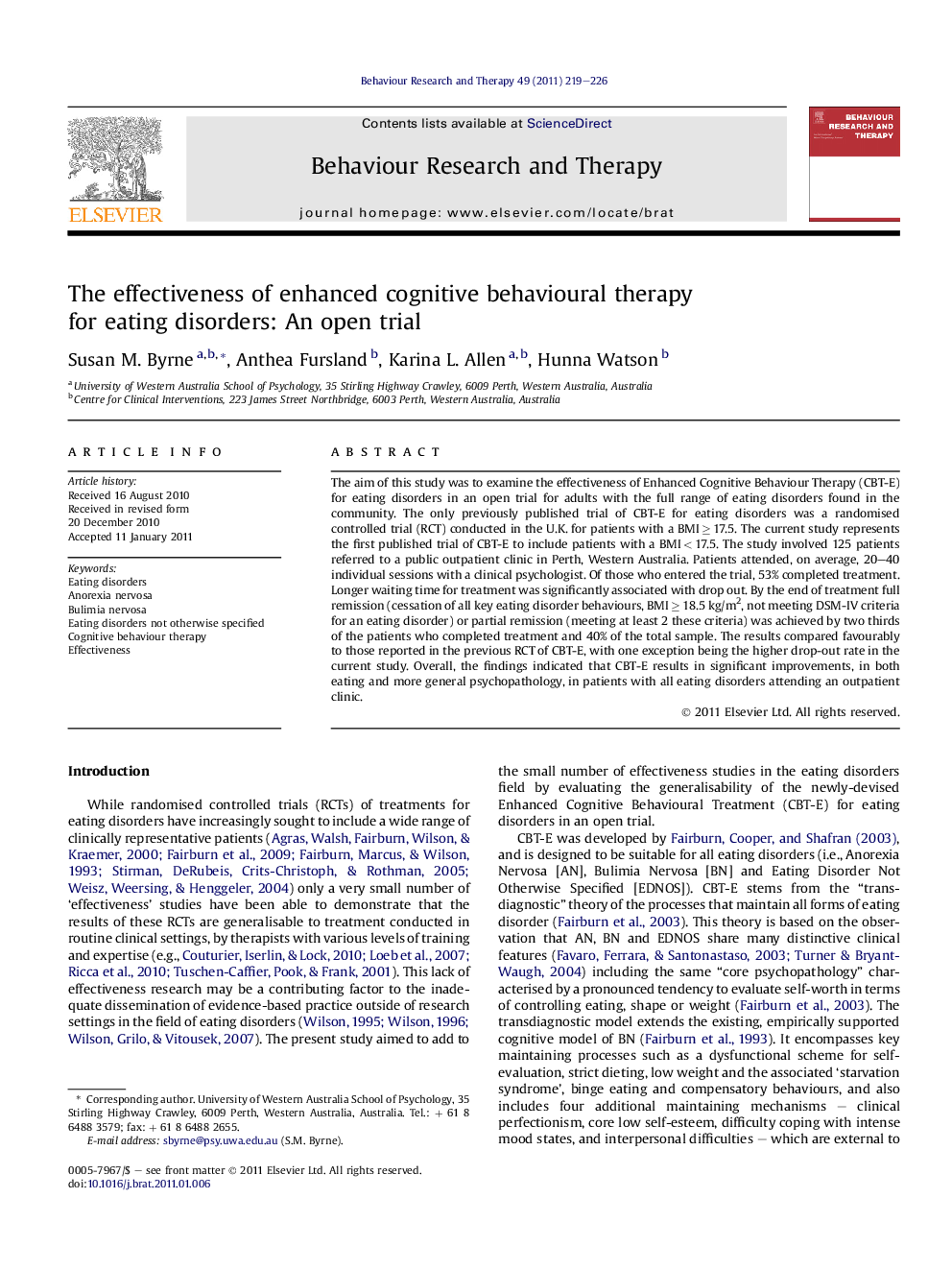| Article ID | Journal | Published Year | Pages | File Type |
|---|---|---|---|---|
| 902059 | Behaviour Research and Therapy | 2011 | 8 Pages |
The aim of this study was to examine the effectiveness of Enhanced Cognitive Behaviour Therapy (CBT-E) for eating disorders in an open trial for adults with the full range of eating disorders found in the community. The only previously published trial of CBT-E for eating disorders was a randomised controlled trial (RCT) conducted in the U.K. for patients with a BMI ≥ 17.5. The current study represents the first published trial of CBT-E to include patients with a BMI < 17.5. The study involved 125 patients referred to a public outpatient clinic in Perth, Western Australia. Patients attended, on average, 20–40 individual sessions with a clinical psychologist. Of those who entered the trial, 53% completed treatment. Longer waiting time for treatment was significantly associated with drop out. By the end of treatment full remission (cessation of all key eating disorder behaviours, BMI ≥ 18.5 kg/m2, not meeting DSM-IV criteria for an eating disorder) or partial remission (meeting at least 2 these criteria) was achieved by two thirds of the patients who completed treatment and 40% of the total sample. The results compared favourably to those reported in the previous RCT of CBT-E, with one exception being the higher drop-out rate in the current study. Overall, the findings indicated that CBT-E results in significant improvements, in both eating and more general psychopathology, in patients with all eating disorders attending an outpatient clinic.
